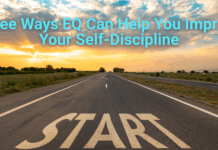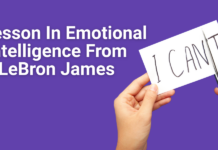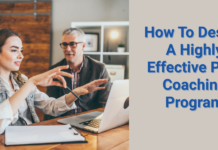
Imagine if you could unlock your ability to learn anything and discover your hidden potential.
It can be difficult in our busy lives to dedicate time to learning a new skill. The promise to learn that second language or finish that online tutorial in HTML, can easily fall by the wayside in the wake of our long days. What if the key to learning is not your energy level or even your desire to improve yourself, but that you need to re-learn how to learn?
Barbara Oakley once worked as a waitress, an army officer, a Russian translator, and today, she is a professor of engineering at Oakland University in Rochester Michigan. She co-teaches the world's most popular course called Learning How to Learn, which is a massive open online course and is hosted on Coursera. She's a New York Times best-selling author of several books, and her newest is called, Mind Shift: Breakthrough Obstacles to Learning and Discover Your Hidden Potential.
I recently interviewed Barbara on the LEADx Podcast to talk about the benefits to continuous learning, and how we can all stand to stretch our minds a bit more. (The interview below has been lightly edited for space and clarity.)
Kevin Kruse: How do you define ‘mind shift’?
Barbara Oakley: Mind shift is that change in your own attitude because you realize that you are capable of a lot more than you originally thought you were capable of. And that's the kind of thing that I did when I suddenly realized that I boxed myself into a corner by following my passion to learn a language. So as a young person, I enlisted in the Army to learn Russian, and guess what? Recruiters are not like banging on my door to recruit me because I speak Russian. I mean, I realized that I just boxed myself in because of my self-beliefs that I couldn't do math and science.
And here's, I think, a really important point. We all know that some people do have a gift for math and science, and they are quick at it. It's easy. And some people, like me, don't. They have to work a lot harder. But because you have to work harder, you're using sort of different neural pathways, and in some ways, you can learn more deeply and be more creative because you're not using the typical pathways. And so you can actually do better. Do you have to work harder? Maybe spend more time at it? Yup. But you can be even better than the ones who are the naturals at math and science.
Kruse: Why do you think it's so important to have a learning lifestyle?
Oakley: For many reasons. I think the first one that instantly pops to mind is you're happier. I mean, if you just go through the day and you're just doing what you have to do at work, and you're doing the things that you have to do to keep your family happy and as far as going to the grocery store and doing all these kinds of things, a lot of what you do is sort of repetitious and kind of drudgery. And when you open your mind and are just doing a little something where you're learning something new that day, you just go to sleep at night and it's like you're happier. But it does a lot of other things too.
When you're learning, you're putting your focused attention on something and that actually enhances your ability to focus on all sorts of other things. So it's almost like learning is a particular workout system for your ability to focus and maintain your attention, which is going to help with your work. It's going to help you to be more interactive with your family. It's going to help in lots of different ways. Also, we know that it staves off Alzheimer's when you get older. It's protective against those kinds of things. It helps keep you mentally sharp. I mean, everybody's met a 60 year old who's kind of sort of curmudgeonly and they can't really grapple with new ideas. And then you've met the 80 year old who's really open to new things, and they have the latest app on their phone. And you want to be one of those kinds of people. And having a lifestyle of learning helps you get there.
Kruse: Do you think a valid reason might be to guarantee yourself better opportunities in the future? Or is it like you’ve got to be a lifelong learner for yourself?
Oakley: I think that both are good reasons for being a lifelong learner. I mean, part of my problem initially in the workforce was that I just didn't really think that trends in the outside world were relevant to me following my passion. And because I isolated myself, I really created problems for myself. So I think it's important to look at trends and look at what's happening in the world. I love Garry Kasparov and his most recent book. And he was the world champion at chess, and he was beaten by Big Blue, the chess program. But he talks about worrying about artificial intelligence taking over our jobs is kind of like worrying that penicillin is going to take away jobs from gravediggers.
Yes, there's going to be jobs disappearing, and you want to be cognizant of that. But there's also going to be these great jobs opening. I mean, for example, just in online learning, there's terrific new opportunities available for people who can edit videos really well and do it in a cost-effective way. There's just so many new opportunities that are opening, and we have to keep ourselves attuned to that.
Kruse: He said that losing to the computer literally changed his view of life.
Oakley: It's true, but at the same time, nobody really loses interest in chess because a computer beat them. And in fact, what's happening is that play in those games is beginning to improve because we're learning great new strategies from computers. We're actually doing better as a result of watching computers and how computers play these kinds of games. I think certainly artificial intelligence is going to have dramatic good things in store for students as far as education goes. I mean, one of the biggest things now is just my students can—like I try to get my test back to them very quickly, and so forth—but students can wait for weeks sometimes to hear back on whether something was right or something was wrong.
And face it, adjuncts are not really paid well enough a lot of times. And universities, I'd love to see them rearrange how they pay things. But it's just not going to be in the cards. So if they can have better support from artificial intelligence, it would just do a world of good for students. And we're beginning to see that. University of Arizona, for example, they're putting their economics course online. And this means that students don't have to wait on a waitlist. Like, I always wanted to take economics, but I couldn't because the classes were always full. Well, these kinds of issues are going to be a thing of the past. And the teaching is actually better because of the way they're structuring it.
Kruse: What advice would you have for a young professional who maybe doesn't know what she wants to be, or is realizes she's going to be many things in her life?
Oakley: I'd say there's no one perfect career, and don't try to overthink things that you've got to find just the right thing for you. Just kind of figure out something that looks like it's going to be a fit for you, and aim that way. If there are a lot of people aiming that way, and the pay isn't very good, I would run the other way, because you can get fooled sometimes. Very well-meaning professors, for example. I heard a terrific professor of psychology say, “Oh, you know, parents will come up to me and say, ‘My son should go into engineering and not psychology because engineering's going to give him more options.'” And he says, “Oh, no, no. Psychology is more general. I mean, in engineering you're going to be in a cubicle.” And it's like, “No.” Engineering gives you a lot of options and it's not just some cubicle thing.
Because it gives you a structure for how to think about what you're doing. And it's not that everybody needs to become an engineer, but whatever you're interested in, like I love psychology, but back it up with something where there is a demand for that. Like, don't fool yourself with the idea that, “Oh, they need psychologists.” Well yeah, they need psychologists. There are many who have Ph.D., and it is extremely hard to get into that position, or into a doctoral program. And even once you're into it, the pay isn't very good. You can go look at the Bureau of Labor Statistics, an.d they'll quote you these big hourly wages. But that's for consulting, and you're going to be lucky if you can get one or two consulting gigs in a year. So just don't be fooled by people who are trying to build their own field by drawing you into it. You want to be building your career. And so have something you like and you're passionate about, but boy, make sure that you've got something that interfaces well with the real world so that you've got career options when you need them.
—
Kevin Kruse is a New York Times bestselling author, host of the popular LEADx Leadership Podcast, and the CEO/Founder of LEADx.org, which provides free world-class leadership training, professional development and career advice for anyone, anywhere.





